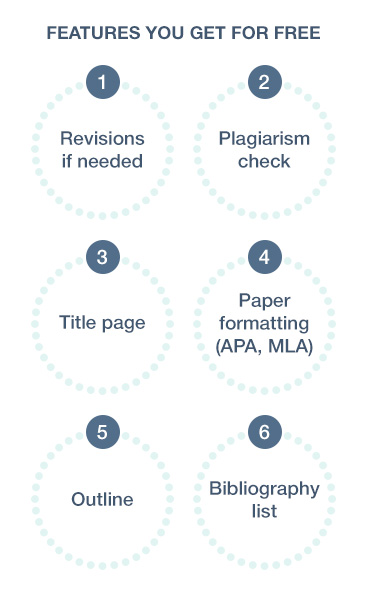Christian Tradition in Beowulf
Beowulf is an epic poem of Old English heroic literature composed by the unknown Anglo-Saxon poet in the nearly the eighth century. The main idea of the poem is to represent an honorable battle between the main character, Beowulf, and different displays of evil power. Many characters of the poem present real historical figures (members of the Swedish and Danish royal family). Therefore, being the old pagan story, Beowulf is the product of the pen of a Christian poet. The author of the poem frequently attributes Christian traditions, motives, and thoughts to his heroes, who behave rather in pagan than Christian ways. In such a way, Beowulf provides the crossroads of Christianity and pagan society that is portrayed in Beowulf and the Anglo-Saxon people who both encounter the mixture of two different religions. Thus, the tension between the values of the warrior Anglo-Saxon society and suggested by poet Christianity is observed throughout the whole poem.
Get a Free Price Quote
Throughout the epic poem Beowulf, many elements of the Christian tradition can be found, e.g. the man who survives by virtue of God’s protection, all earthly gifts are given by God, and the man should be unselfish and modest. However, there exist a tension between the author’s Christian believes and the pagan code of warrior people whose deeds are in conflict with the writer’s values. The writer tried to portray a pagan warrior, Beowulf, who usually acts in an un-Christian way and is filled with Christian traditions and values. Thus, this tension leads to permanent asides about Christianity and God, as well as heaven and hell.
Nevertheless, Beowulf represents heroism and great honor of warrior people. Being the strongest and ablest man on earth at that time, a Geatish hero demonstrates pagan values of the heroic power of his society through fights with the monster Grendel, its mother, and the dragon. However, the Christian poet defined the heroic warrior as a man with Christian customs, who could sacrifice his life, defending his people against evil with the help of God. Throughout the poem, Beowulf permanently referred to God as his protector. For example, the hero of the poem referenced to the Christian God in his battle with Grendel’s mother, “But the Lord of Men allowed me to behold – / for He often helps the unbefriended” (Heaney 1668-69).
Beowulf’s triumphs against evil manifestations are the displays of Christian virtues such as the glory of good, loyalty, sacrifice, and humanity. In addition, the king Hrothgar glorifies Beowulf’s wisdom by referring to Christian God who favored his people with such wise and strong hero (Heaney 1724-26). Therefore, the Christian poet tried to portray a pagan hero, Beowulf, according to Christian standards, but he could not deny the fundamental pagan values and avoid the tension between two different religions.
In addition, the warrior code of pagan society is apparent throughout the poem based on the values of warrior people on conflict and revenge that contradicts the Christian tradition of forgiveness and sacrifice. For instance, the warrior is supposed to avenge for the death of a relative, and it can be observed in the episode when Beowulf overcomes Grendel’s mother, “I have avenged the evil deeds, / the slaughter of Danes, / has been avenged / as it was right to do” (Heaney 1735-38).
8 Reasons to choose us:
- 01. Only original papers
- 02. Any difficulty level
- 03. 300 words per page
- 04. BA, MA, and Ph.D writers
- 05. Generous discounts
- 06. On-time delivery
- 07. Direct communication with an assigned writer
- 08. VIP services
Personal glory is also one of the values of warrior people because warriors are praised and remembered for their heroic deeds. The example of such preferences is words of Hrothgar towards Beowulf, “Glory is raised up over the far ways – / your glory over every people, Beowulf my friend” (Heaney 1751-52). Thus, Beowulf preferred to be famed and perpetuate his name in spite of entrance into heaven. The greed and pride of the Geatish hero demonstrate his selfish desire to gain fame instead of appreciating the acquired glory. Beowulf stated, “he who can earn it should fight / For the glory of his name; fame after death / Is the noblest of goals” (Heaney 1387-89). Therefore, this value of warrior people differs from a Christian custom of obedience and meekness to the kingdom of heaven. In the poem, the legacy and fame are rewards and main achievements of a good warrior while Christianity emphasizes the existence of eternal life that waits for every deceased soul, but not the glorification in the coming ages because the pride is a hard sing in the Christian tradition. In addition, pagan burial rituals in Beowulf differ from Christian ideology – the pagan culture recognizes cremation while according to Christian tradition, the body should be buried into the ground. Thus, cremation confirms the differences between the poet’s Christian ideals and the values of warrior people.
Therefore, the strong connection between Christianity and Paganism within the epic poem explains the double influence of these two religions on Beowulf. The tension between the values of the warrior Anglo-Saxons and believes of Christian poet could be explained by changes in social and religious life during the times when the piece was written, which signifies the transition from Paganism to Christianity. Beowulf demonstrates a mixture of paganism with the manifestations of monsters, Beowulf’s supernatural physical abilities, magic, the importance of glory, and Christian ideals of the victory of good over the evil, sacrifice, and commitment to the nation. He was a hero who fought with manifestations of evil and died from his own pride and greed. Thus, Beowulf represents constant tension between Christianity and Paganism that is expressed throughout the story. The author of the poem was able to demonstrate the importance of morality and the call of duty of his time and create his characters as the unity of Christian values and pagan traditions.




 TOP 10 Writers
TOP 10 Writers


